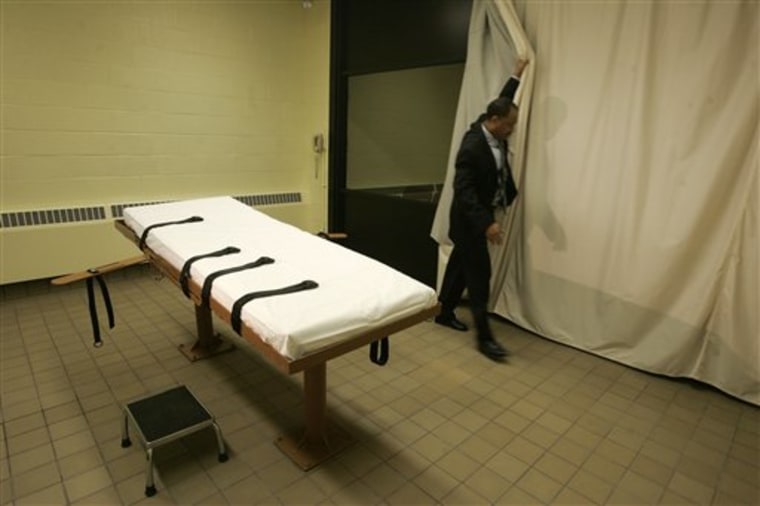Britain said Thursday it will block the export of three lethal injection drugs to the United States and is also urging a Europe-wide ban on American sales of the drugs.
Business Secretary Vince Cable said that a block on exports of pentobarbital, pancuronium bromide and potassium chloride would be formalized in a few days. In November, Britain blocked exports of the sedative sodium thiopental for use in executions following a legal challenge from a human rights group.
"We oppose the death penalty in all circumstances and are clear that British drugs should not be used to carry out lethal injections," Cable said. "Because of the importance and urgency of the situation this is an issue on which we felt we had to take the lead."
Britain has urged the European Commission to expand the export ban to all European Union nations, Cable added.
Reprieve, the London-based group for prisoner rights that sought the ban, welcomed the news but it said U.S. states imposing the death penalty via lethal injection are now turning to a Danish company, Lundbeck A/S, for supplies of pentobarbital.
Denmark's foreign minister said she will urge U.S. states such as Texas and Ohio to stop using that drug.
Ohio buys its pentobarbital from a U.S. distributor and has not heard directly from the Danish government, said prisons spokesman Carlo LoParo, who declined to comment further.
Pentobarbital is a sedative with a range of medical uses, including the treatment of epileptic seizures and other conditions that require some form of sedation. It is also often used for putting down animals. Since late last year, it has been used in the U.S. for lethal injections as supplies of sodium thiopental become scarce.
Danish Foreign Minister Lene Espersen said she cannot take direct action against Lundbeck because the drug is produced by a plant in Kansas.
Pentobarbital has been used to execute prisoners in Ohio and Oklahoma. Fellow U.S. states Mississippi and Arizona are also considering switching to the drug for lethal injections.
Lundbeck has written letters to U.S. prison authorities asking them not to use pentobarbital for lethal injections, but with little effect. The pharmaceutical company, whose best-sellers include drugs for the treatment of psychiatric and neurological disorders, is under pressure from human rights groups to take stronger action, such as rewriting distribution contracts with clauses prohibiting sales of pentobarbital to U.S. prisons.
Lundbeck has rejected that idea, saying it would be impossible for distributors to track how every vial is used.
The company has said it sells about 50 million doses of pentobarbital a year, but has declined to give any breakdown of sales. Pentobarbital, it has said, accounts for a very small percentage of overall sales.
Pancuronium bromide is a muscle relaxant and potassium chloride is used to stop the heart and is sometimes used in abortion procedures.
Cable said that the government is satisfied that the export ban will not affect legitimate medical trade in the drugs.
Jan M. Olsen reported from Copenhagen, Denmark. Maria Cheng in London and Andrew Welsh-Huggins in Columbus, Ohio, contributed to this report.
